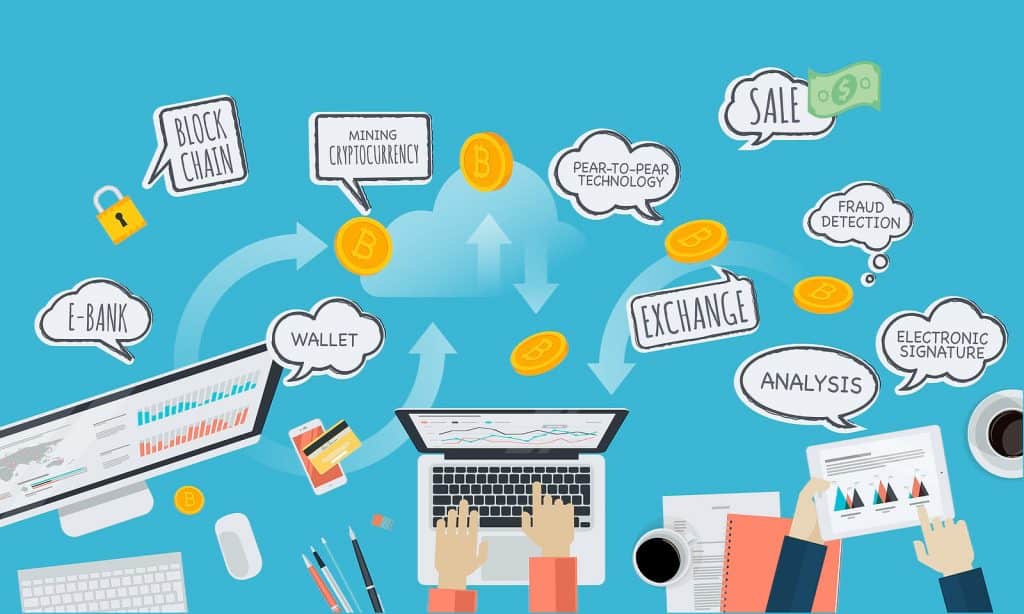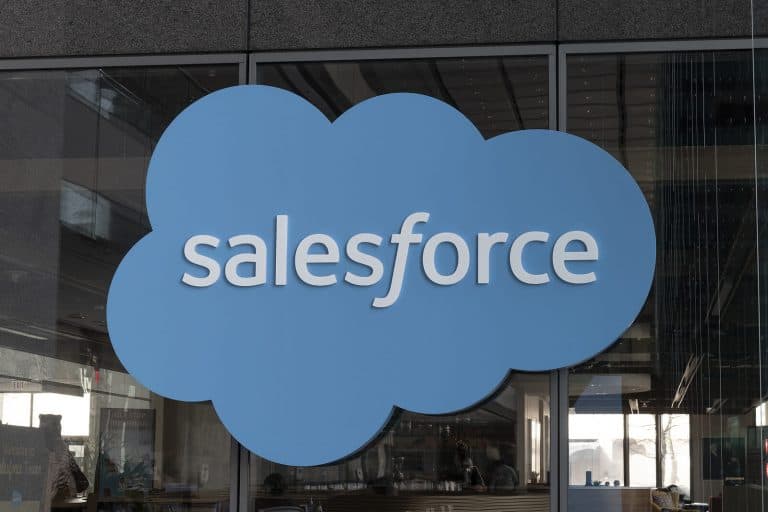Learn more about blockchain in marketing.
Table of Contents
ToggleBlockchain entered the tech scene in 2008 with the launch of Bitcoin. Its introduction led most people to see blockchain and cryptocurrencies as synonymous. However, with time and a better understanding of blockchain, the world has come to the realization that blockchain’s value proposition is far broader.
At its most basic, it allows two or more parties (whether it is people, businesses, or computer systems) to exchange value in digital environments without the interference of an intermediary between them. Simply put, blockchain is redefining the terms of trade for the digital economy.
Blockchain technology is uniquely suited to conducting transactions that are verifiable, secure, and private. The data shared in these transactions can be between multi-parties, inter-organizational, cross-border, and so on. As more and more businesses understand the concept of blockchain better, they realize its potential in various industries.
For the longest time, marketing and advertising have been a very traditional industry with brands depending upon the same processes and concepts to work each time. With the advent of social media, the industry came of age and successfully experimented with data-based marketing. Blockchain is set to disrupt the industry further as it has important implications for marketing and advertising.
Companies are collecting more data than ever before and are making significant business decisions based on it. The high volume of data collected from consumers has resulted in more efficient decision-making for businesses. This is because consumers’ data has helped companies better understand their needs and align their products and services to suit these needs.

However, the only flaw in the system so far has been related to the accuracy, reliability, and transparency of the data collected. Blockchain technology is being relied upon to address this issue in the data-driven market today. But due to limited knowledge, the technology has not been fully applied in the field so far, and the chances are that the early adopters of the technology will take the major share of the pie. This article aims to provide a better understanding of the technology and its applications in the field of marketing.
The Disruptive Potential of Blockchain in Marketing
The various intrinsic properties of blockchain-like transparency, immutability, and security make it a reliable and trustworthy component in industries such as supply chain management, finance, IoT, healthcare, human resources, and more. It has the capacity to shrink frictions in the various transactions, to make intermediaries like banks redundant, and finally to pass the controls of personal data and information into the hands of consumers. This is the most important feature that will be leveraged as blockchain enters the marketing industry.
Near-zero Transaction Costs
With the finance sector, blockchain technology has cut intermediaries and directly connects both parties at each end of the transaction. This has resulted in both parties being able to avoid cross-border transaction costs. Similarly, in marketing, blockchain is making third-party platforms like Facebook and Instagram redundant. Marketers currently rely on these platforms to source data voluntarily shared by people in exchange for money. With the control of data back in the public’s hands, the marketers will directly deal with people – cutting out the high costs paid to third-party platforms.
This set-up will ultimately lead to an open and legitimate mechanism where user-tailored deals will be available for people. Companies will be able to target consumers by delivering personalized prices that are a function of the consumer profile.

At the same time, marketers will be able to offer personalized smart contracts that can get activated when a user subscribes to the company’s newsletter and updates or signs up for a reward program. The micropayments collected can be directly deposited in the user’s account whenever they interact with the company’s marketing collateral.
Personalized Advertising
Currently, the majority of users on the internet view advertising as a disruptive and negative display, which they try to block out by installing ad-blockers. This has very little effect on the consumers privacy, though. Blockchain-enabled technology, on the other hand, envisages helping marketers recapture the advertising revenue by proposing a different model altogether. Blockchain technology enthusiasts advocate a model wherein marketers pay consumers directly for their attention. This model will cut-out the layer of third parties that host advertisements. Individuals will be in better control of their own profiles and only see ads they will be genuinely interested in. At the same time, blockchain will be able to verify the ad delivery and guarantee much higher consumer engagement. Rather than viewing unsolicited email adverts that simply put-off consumers, they will be able to view ads based on their own preferences.
Putting an End to Marketing Fraud and Spam
Blockchain provides a very important feature – fraud verification. With the help of this feature, one can verify the origin and methodology adopted by marketers. Micropayments will also contribute towards destroying the current concept of mass phishing and spam. Since a small amount will have to be paid to the recipient of email adverts, spammers will get discouraged by the cumulative cost of the activity of sending thousands of spam mails at once. Companies will make an effort to identify interested consumers and show advertisements to a select set of people only. A better conversion rate will also accompany this trend.
Blockchain in Marketing: Dealing with Fake Profiles
Blockchain will also make it extremely difficult for bots to create fake social media accounts. This will help companies save money that is usually spent on advertising to fake profiles and is never accounted for. Bots will no longer be able to flood users with deceptive messages and steal advertising money from big brands. People will be able to prove ownership of viral content, and advertisers will be able to identify these creators and deal with them directly.
Blockchain technology holds the potential that can enable societies to become more trustworthy and empowered. Blockchain aims to do that by increasing visibility, connecting participants in the transaction, and rewarding individuals when they choose to share personal data. Marketing and advertising will be fundamentally impacted by leveraging blockchain technology to reinvent and enhance customer relationships. Early adoption of this technology can put companies in an excellent spot to benefit from the near future ideas.
Summary:
Blockchain in Marketing
The Disruptive Potential of Blockchain in Marketing: Putting an End to Marketing Fraud and Spam. Personalized Advertising. Near-zero Transaction Costs.




